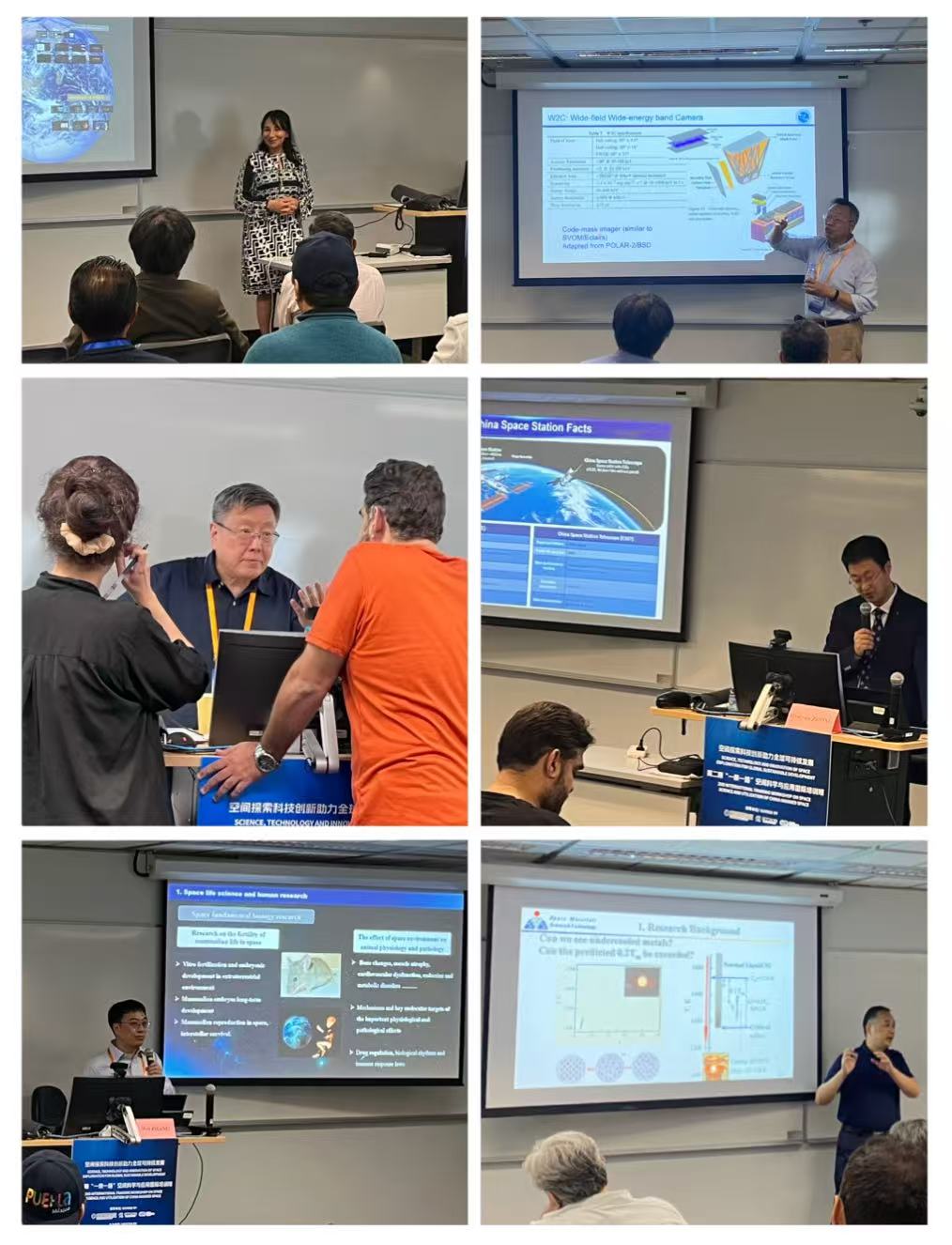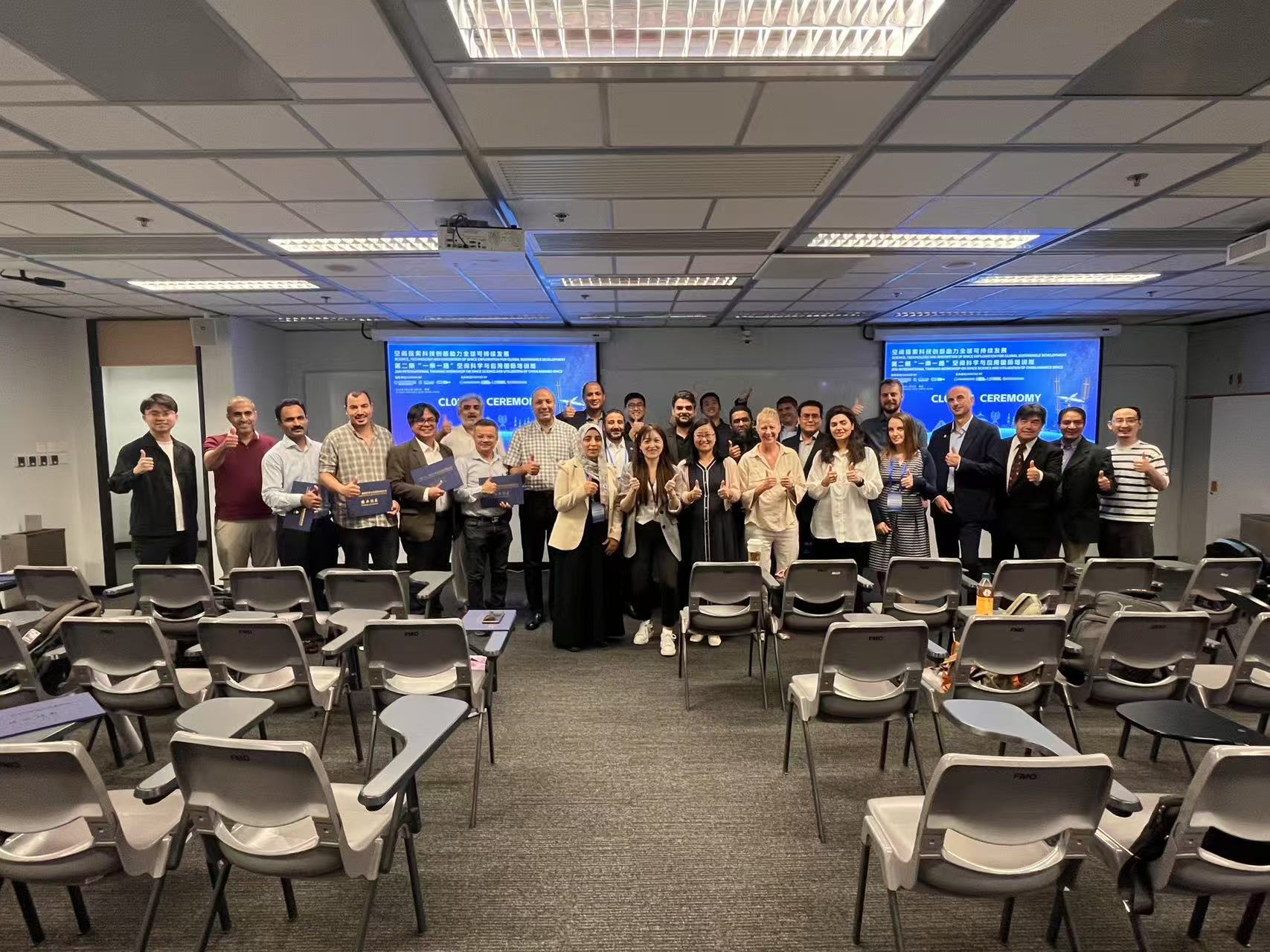From July 23 to August 5, 2025, the second Belt and Road International Training Workshop on Space Science and Utilization successfully came to an end in Hong Kong. Simeon ASENOVSKI, Deputy Director -General of the Space Research and Technology Institute of the Bulgarian Academy of Sciences, Su Hui, a representative of the workshop instructors, as well as experts, scholars from countries along the Belt and Road, and members of the workshop organizing committee jointly participated in the closing ceremony. At the closing ceremony, members of the organizing committee of the workshop, hosted by the Technology and Engineering Center for Space Utilization of the Chinese Academy of Sciences, presented completion certificates to the trainees.
The learning format of this training workshop was diverse, covering theoretical learning, group projects (taking advantage of the experimental opportunities of the China's space station), case analysis, and on - site laboratory visits. The workshop invited 24 well - known scholars and engineering experts in the field as instructors, including Dr. Amal KASRY from UNESCO, Zhang Shuangnan, Director of the Particle Astrophysics Center of the Institute of High Energy Physics, Chinese Academy of Sciences, and Gao Yang, Director of the Space AI Robotics Sustainability Research Center at the Hong Kong University of Science and Technology. In addition, researchers Zhong Hong'en, Zhang Wei, senior engineer Liu Feifei, and researcher Wan Xue from the Technology and Engineering Center for Space Utilization of the Chinese Academy of Sciences also gave special lectures. The training content was extensive, involving many important topics such as the research progress and planning of the Chinese Space Station, promoting sustainable development goals through global cooperation in space science, an introduction to the International Decade of Science for Sustainable Development (IDSSD), the space science and application support capabilities, interfaces, and requirements of the China's space station.
The trainees' academic fields covered a wide range of areas, including Earth and planetary sciences, biochemistry and molecular biology, genetic immunology, astrophysics and radio astronomy, materials science, laser communication technology, optics and photonics, and space nanodevice materials. At the closing ceremony, the trainees had in - depth exchanges on their gains from participating in the training workshop. Professor Jose Mendoza from the National Institute of Astrophysics, Optics and Electronics of Mexico said, "This training workshop can be regarded as a catalyst for our future cooperation. We also look forward to the skills and knowledge acquired by all trainees being shared and put into practice in the Belt and Road region, thus expanding the influence of space applications." Professor Tatpong TULYANANDA from Mahidol University in Thailand said, "Through this intensive training, especially the high - quality teaching and interactive exchanges provided by many well - known experts, I have a more comprehensive understanding of the field of space applications and a profound understanding of conducting scientific research and experiments on the space station. From now on, I will view issues related to space science and applications from a new perspective."
This training workshop has enabled foreign partners to better understand the great achievements of China's manned space program and the development trend of space science and utilization. They have learned professional knowledge in the field of space science and utilization, and been informed of the relevant processes of the utilization resources of China's space station and the implementation of cooperative projects. It will greatly promote the capacity building of countries and regions along the Belt and Road in the fields of manned space science and utilization.

Figure 1: On - site photo of the expert lecture

Figure 2: Group Photo at the Closing Ceremony

Figure 3: Ceremony of Presenting Graduation Certificates to Trainees
File Download: